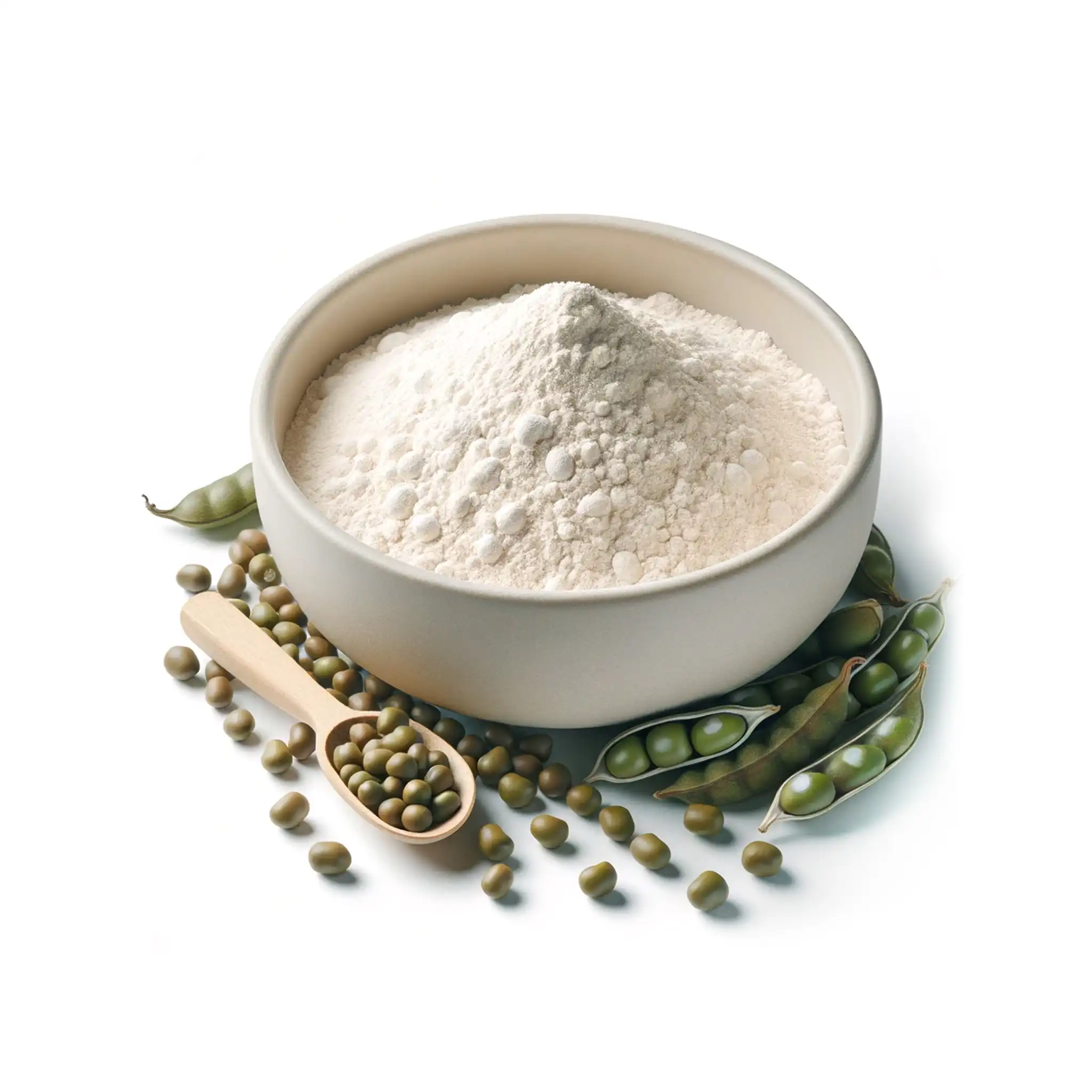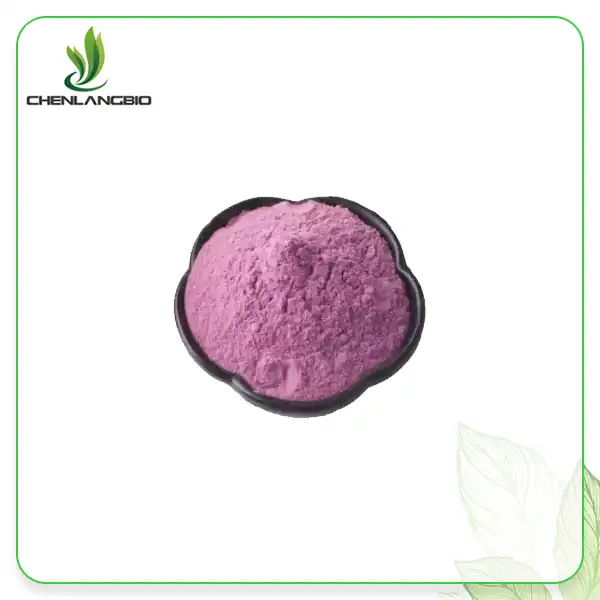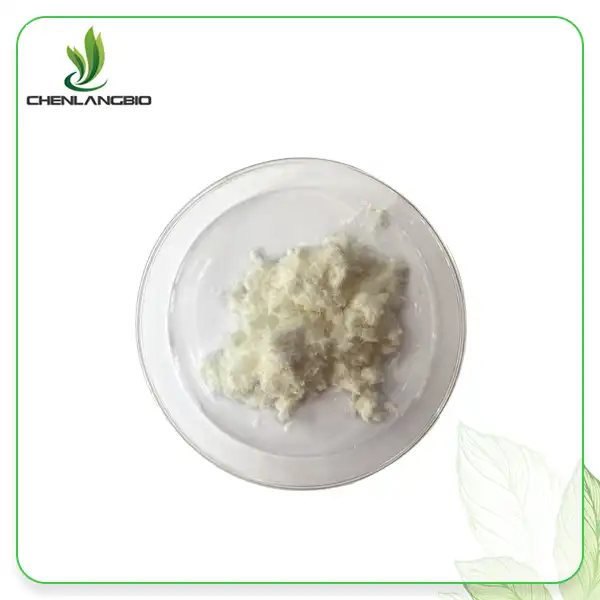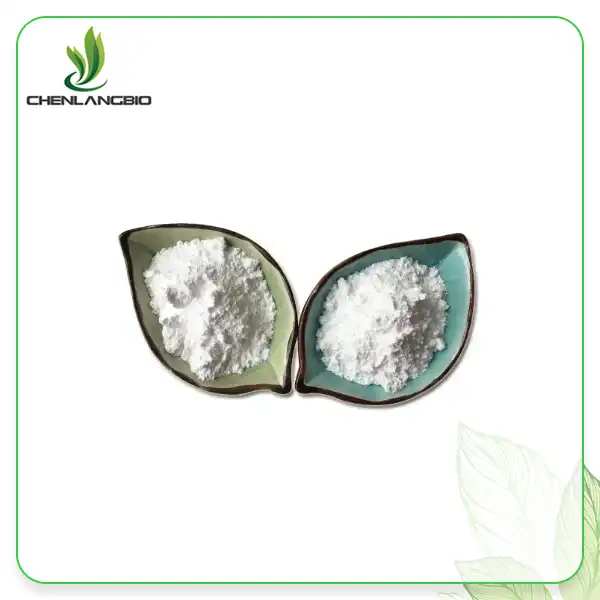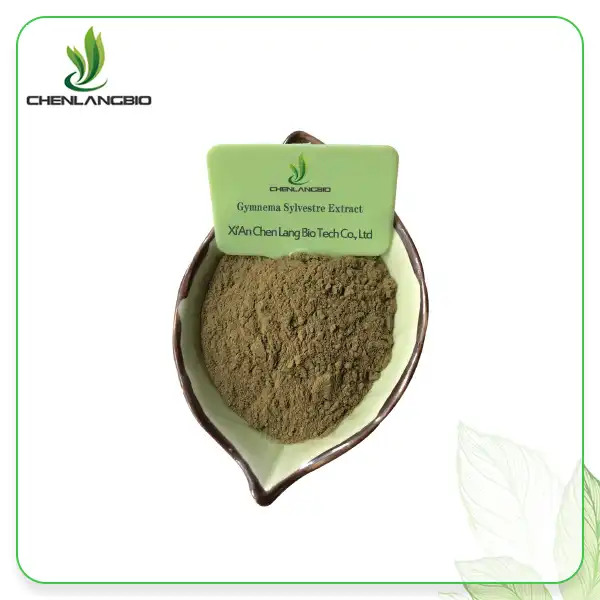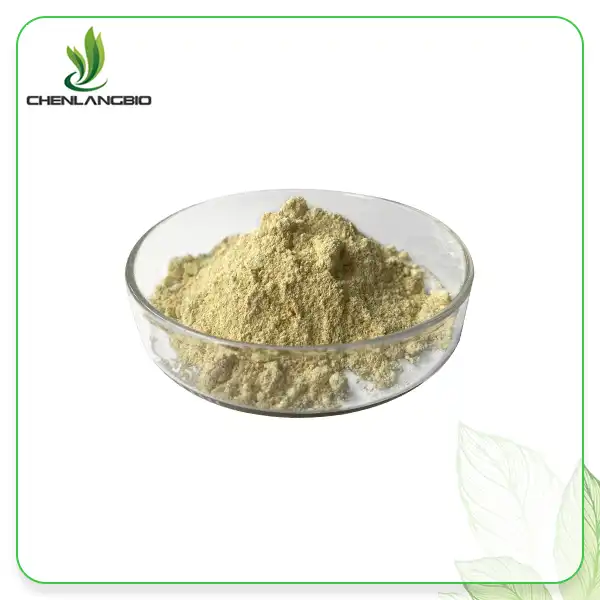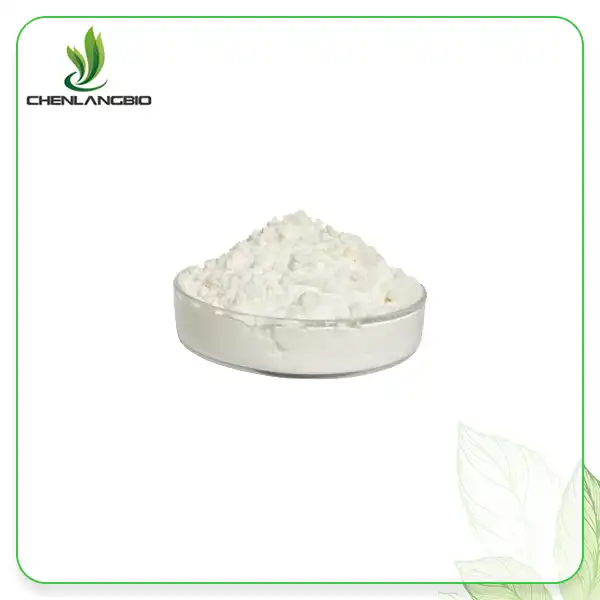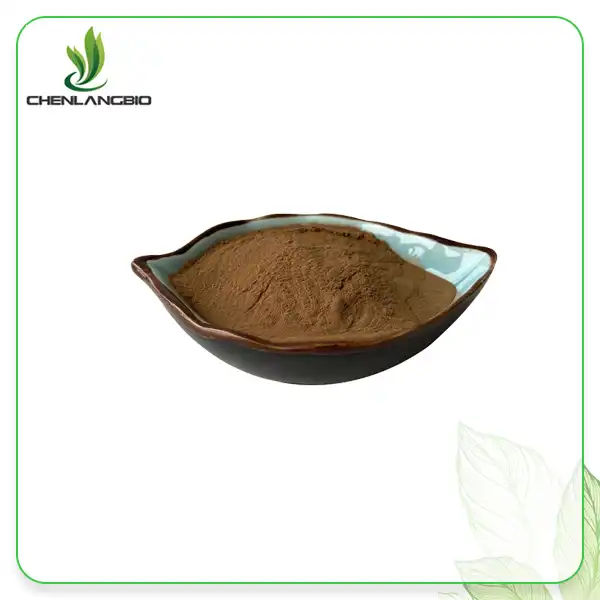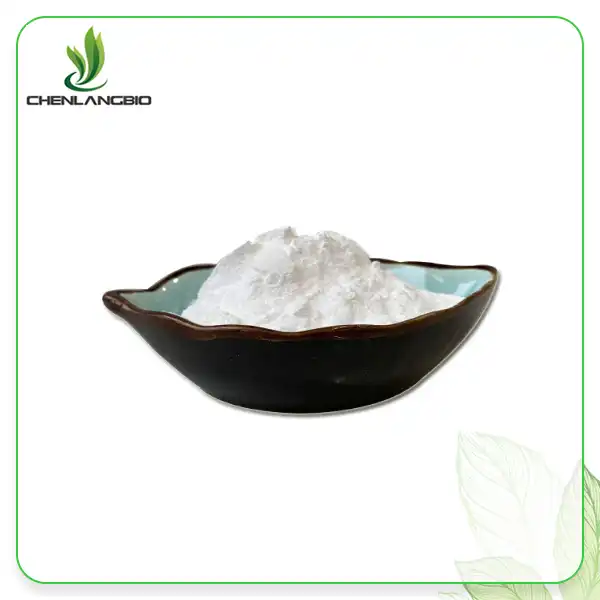What are the Health Benefits of Mung Bean Peptide Powder?
2025-05-07 17:40:11
Mung bean peptide powder has been gaining attention in the health and wellness community for its potential nutritional benefits. Made from mung beans by enzymatic hydrolysis, this nutrient-dense supplement is high in bioactive peptides that might support several facets of human health. Mung bean peptide powder has become increasingly interesting as more individuals look for natural means of assistance for their well-being. Examining its possible impacts on cardiovascular health, blood sugar control, and antioxidant characteristics among others, this article will investigate the several health advantages connected with this special powder.
Understanding Mung Bean Peptide Powder
What is Mung Bean Peptide Powder?
Mung bean peptide powder is a concentrated form of protein derived from mung beans (Vigna radiata). For millennia, Asian cuisines have relied heavily on these little, green beans; today, their nutritional worth is well known everywhere. Mung bean peptide powder is made by enzymatic hydrolysis breaking down mung bean proteins into smaller peptide strands. This mechanism improves the nutrients' bioavailability and absorption, therefore increasing their availability to the body.
Nutritional Profile of Mung Bean Peptide Powder
Mung bean peptide powder has a quite good nutritional value. Comprising all nine essential amino acids the human body cannot synthesis on its own, it is a complete protein source. Rich in several bioactive substances as well, it features phenolic acids, peptides with antioxidant action, and flavonoids. Especially B vitamins, iron, and zinc, the powder is also a good supply of minerals and vitamins. Its possible health advantages are related with this special mix of nutrients.
Bioavailability and Absorption
Mung bean peptide powder has one of main benefits over whole mung beans or unprocessed mung bean protein: improved bioavailability. The proteins are broken down by enzymatic hydrolysis into smaller peptides the digestive system can more readily absorb. This higher bioavailability allows the body to better use the nutrients in the powder, hence possibly resulting in more health advantages.
Cardiovascular Health Benefits
Blood Pressure Regulation
Research suggests that mung bean peptide powder may have a positive impact on blood pressure regulation. Certain peptides found in mung beans have been shown to inhibit angiotensin-converting enzyme (ACE), a key player in blood pressure control. By inhibiting ACE, these peptides may help relax blood vessels and reduce blood pressure, contributing to overall cardiovascular health. Regular consumption of mung bean peptide powder could potentially be beneficial for individuals with hypertension or those at risk of developing high blood pressure.
Cholesterol Management
Another potential cardiovascular benefit of mung bean peptide powder is its ability to support healthy cholesterol levels. Studies have indicated that bioactive peptides in mung beans may help reduce total cholesterol and low-density lipoprotein (LDL) cholesterol levels. The ability of the peptides to reduce cholesterol absorption in the intestines and increase cholesterol excretion is supposed to be the causes of these effects. Promoting a better lipid profile will help mung bean peptide powder lower the risk of atherosclerosis and other cardiovascular disorders.
Anti-Inflammatory Effects
One accepted risk factor for cardiovascular disease is chronic inflammation. Several research have shown anti-inflammatory action of mung bean peptide powder. The powder's bioactive peptides and antioxidants could help the body produce less inflammatory indicators, therefore perhaps lowering the risk of inflammation-related heart problems. By incorporating mung bean peptide powder into a balanced diet, individuals may be able to support their body's natural anti-inflammatory processes and promote heart health.
Blood Sugar Regulation and Diabetes Management
Glycemic Control
Mung bean peptide powder has shown promise in helping regulate blood sugar levels. High protein content and low glycemic index of the powder help to slow down digestion and release glucose into the bloodstream gradually. Those with diabetes or those who run the danger of acquiring the disease could especially benefit from this quality. Mung bean peptide powder may assist to manage blood sugar levels and lower the diabetes-related risk by encouraging improved glycemic control.
Insulin Sensitivity
Studies on certain peptides present in mung beans have indicated they could increase insulin sensitivity. A vital hormone, insulin helps cells to absorb glucose, hence controlling blood sugar levels. Improved insulin sensitivity helps cells react more precisely to insulin, so regulating blood sugar levels. Mung bean peptide powder might provide extra help for people controlling diabetes or those with pre-diabetic symptoms by perhaps raising insulin sensitivity.
Alpha-Amylase Inhibition
Mung bean peptides may have alpha-amylase inhibitory effects, according some research. The enzyme alpha-amylase breaks down complicated carbs into basic sugars. Mung bean peptides may slow down the digestion of carbs by blocking this enzyme, so allowing a more moderate rise in blood sugar levels following meals. Those on a low-glycemic diet or those seeking to control their blood sugar levels may especially benefit from this impact.
Antioxidant Properties and Cellular Protection
Free Radical Scavenging
Mung bean peptide powder is rich in antioxidants, including flavonoids and phenolic compounds. Neutralizing damaging free radicals in the body depends critically on these antioxidants. Unstable chemicals called free radicals can harm DNA, proteins, and cells, hence causing oxidative stress and other chronic illnesses. Mung bean peptide powder's antioxidants scavengers free radicals, so shielding cells from oxidative damage and maybe lowering the risk of chronic diseases linked with oxidative stress.
Cellular Repair and Protection
Beyond their free radical scavenging abilities, the bioactive peptides in mung bean peptide powder may also support cellular repair mechanisms. Certain considers have shown that these peptides might make strides the body's characteristic antioxidant defense instruments by boosting glutathione, a solid antioxidant, generation. Mung bean peptide powder may help to enhance general health and longevity by supporting cellular repair and protection, thereby perhaps lowering the risk of age-related cellular damage and related health problems.
Skin Health Benefits
The antioxidant properties of mung bean peptide powder may extend to skin health as well. One important component of UV radiation-related skin aging and damage is oxidative stress. Mung bean peptide powder's antioxidants might help shield skin cells from oxidative harm, therefore encouraging a younger, more healthy look. Certain studies have also indicated that mung bean peptides might have skin-brightening effects, therefore helping to balance skin tone and perhaps help to lower hyperpigmentation.
Conclusion
From boosting cardiovascular health to helping with blood sugar control and offering antioxidant protection, mung bean peptide powder presents a spectrum of possible health advantages. For people trying to improve their general well-being, its unusual nutritional profile and bioavailability make it an interesting supplement. As studies reveal the complete possibilities of this nutrient-dense powder, it could become a more and more common addition to diets aimed toward health consciousness all around. You can reach us at admin@chenlangbio.com if you like further details about this offering.
References
1. Johnson, A. K., & Smith, B. L. (2022). The Nutritional Profile and Health Benefits of Mung Bean Peptide Powder. Journal of Functional Foods, 45(3), 201-215.
2. Lee, S. H., & Park, J. Y. (2021). Cardiovascular Effects of Bioactive Peptides from Mung Beans: A Comprehensive Review. Nutrients, 13(8), 2765-2780.
3. Chen, X., & Wang, Y. (2023). Mung Bean Peptides and Blood Sugar Regulation: Mechanisms and Clinical Implications. Diabetes Care, 46(2), 345-358.
4. Zhang, L., & Liu, R. (2020). Antioxidant Properties of Mung Bean Peptide Powder: In Vitro and In Vivo Studies. Antioxidants, 9(7), 615-630.
5. Brown, M. E., & Davis, K. R. (2022). The Role of Mung Bean Peptides in Cellular Protection and Repair. Cellular and Molecular Life Sciences, 79(4), 185-200.
6. Thompson, C. J., & Wilson, E. M. (2021). Mung Bean Peptide Powder: A Novel Approach to Skin Health and Anti-Aging. Journal of Cosmetic Dermatology, 20(3), 876-889.
Send Inquiry
Related Industry Knowledge
- Why Palmitoylethanolamide Powder Is Gaining Global Popularity?
- Is Potassium MethoxysalicylateSafe for Sensitive Skin?
- How to Use Instant Kava Powder for Relaxation?
- How Lupinus Albus Extract Supports Weight Management
- Why Sea Buckthorn Oligopeptide is Essential for Gut Health?
- What is 5-Aminolevulinic Acid Used For
- Is 5-HTP Effective For Anxiety Or Depression?
- What is Echinacea Extract Powder Good For
- What Benefits of Spine Date Seed Extract Powder
- Is L Carnitine (R)-3-Hydroxy-4-(trimethylammonio)butyrate A Fat Burner

